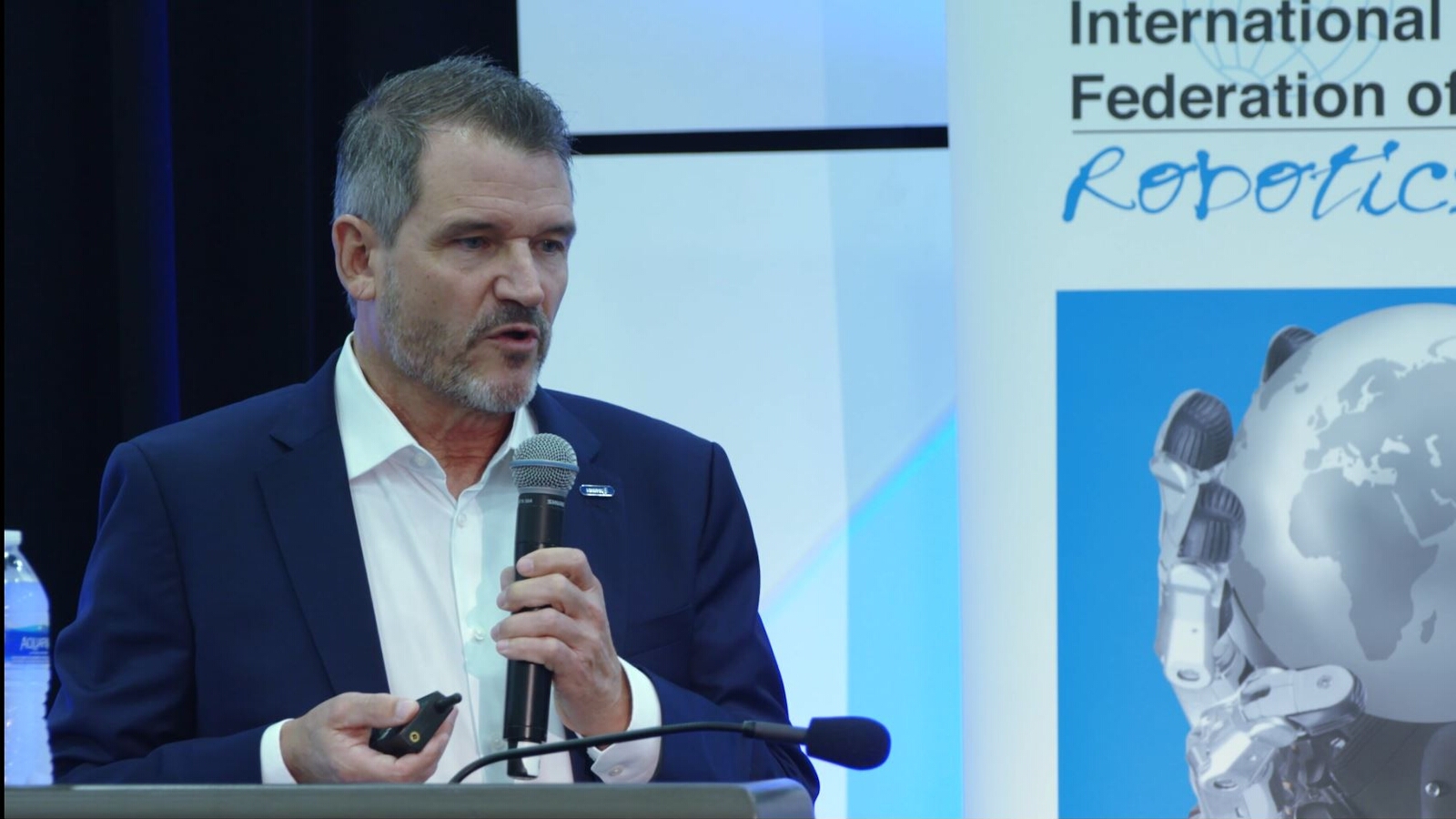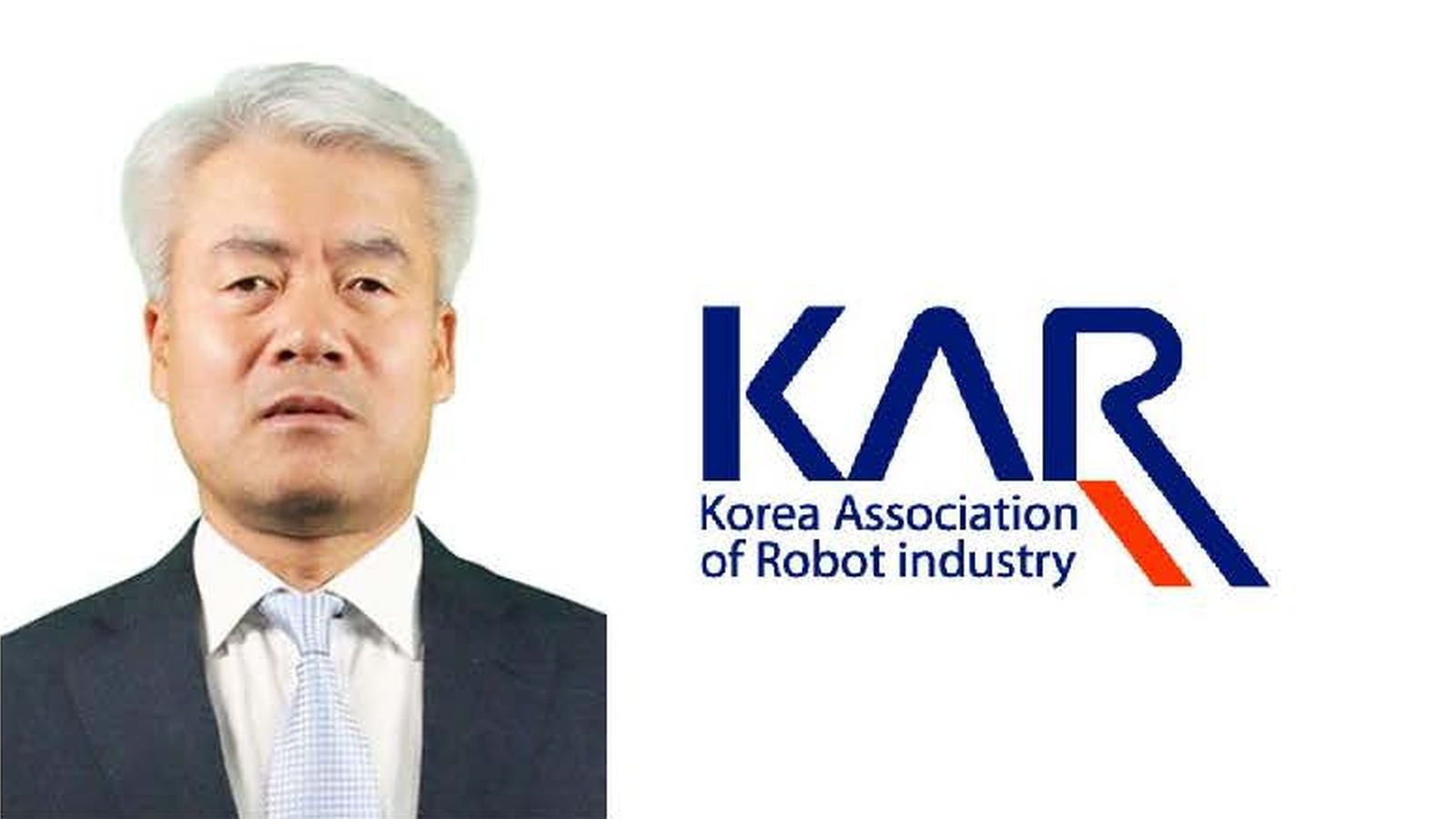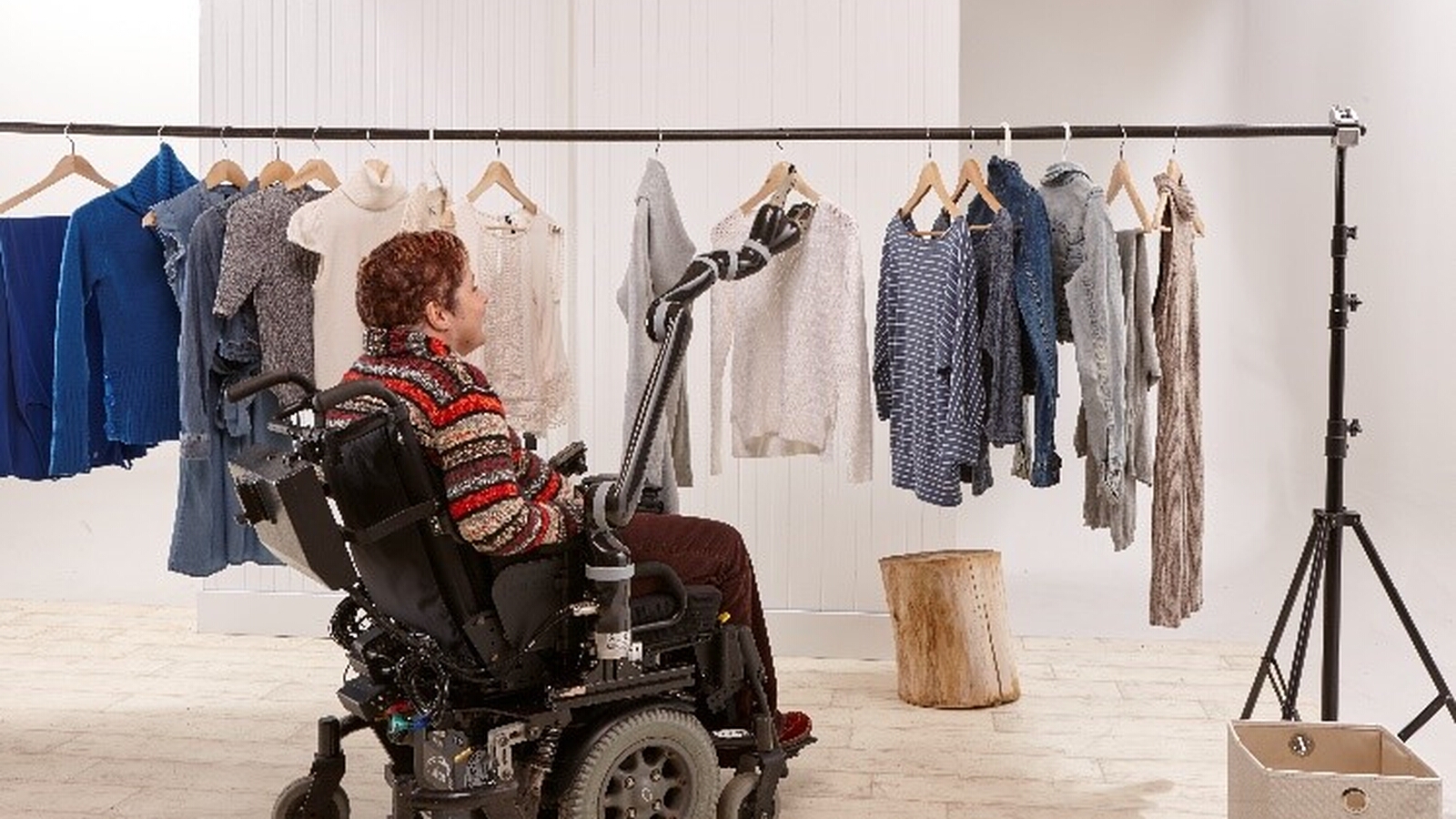
Order picking has been automated with ABB robots at Heemskerk’s processing facility, reducing the amount of time that fresh food spends in the supply chain, which has ex-tended shelf life and minimized waste.
Heemskerk Fresh & Easy has been ahead of the curve in creating products that make it easy for its customers to lead a healthy lifestyle. Wim Heemskerk started the company in the 1960s, selling chopped vegetable soup mixes that quickly became a regular dinner item in Dutch households for the convenience they offered to busy consumers.
Sixty years on and Heemskerk is on top of its game, delivering anywhere between 3.5 million to 4 million fresh convenience products every single week to retail companies and fast food chain across the globe. Buoyed by a growing preference for more plant-based, minimally processed food, Heemskerk has expanded its operations to offer more than 400 products such as fresh salads, ready-to-cook meal boxes and pre-cut vegetables and fruit that can satisfy diverse customer needs and tastes.
As its expansion took shape, Heemskerk faced challenges in the supply chain as the company needed to make just-in-time deliveries of fresh food products to supermarkets across the country. As food such as fresh salads and ready-to-cook meals have very short shelf lives, typically of three to four days, being able to reduce the amount of time that the food spent in the supply chain is crucial for Heemskerk and its supermarket customers who can stock the food for longer and reduce potential wastage.
This coupled with diverse food demands from end customers meant that the existing manual order picking and dropping operations at the Heemskerk facility was no longer sufficient for the company. A shortage of skilled labor to support the large-scale process also increased manufacturing costs. These pain points prompted Heemskerk to invest in a robotics automation solution from ABB that offered the speed and flexibility to support the company with faster manufacturing processes and shorter lead times to supermarkets.
The ABB solution
ABB supplied a robot-centric solution to automate the order picking operations at Heemskerk’s production facility. At the beginning of the product flow is an ABB IRB 660 four-axis robot that removes crates containing the orders for a particular supermarket and places them on a conveyor belt. The crates then move to the order picking zone where six IRB 6700 six-axis robots positioned on a track pick up the crates and place them in “pigeon holes” that are designated for that supermarket. Two other IRB 6700 robots positioned on the other side of the order picking zone consolidate the order picked crates to create stable mixed high stacks. These crates are finally picked up by another IRB 660 four-axis robot that places the crates onto dollies to be transported directly to the supermarket. This form of order picking makes the solution more robust as it can seamlessly process an endless variety of orders – a concept that is very useful to the daily changing volume orders of the fresh food industry.
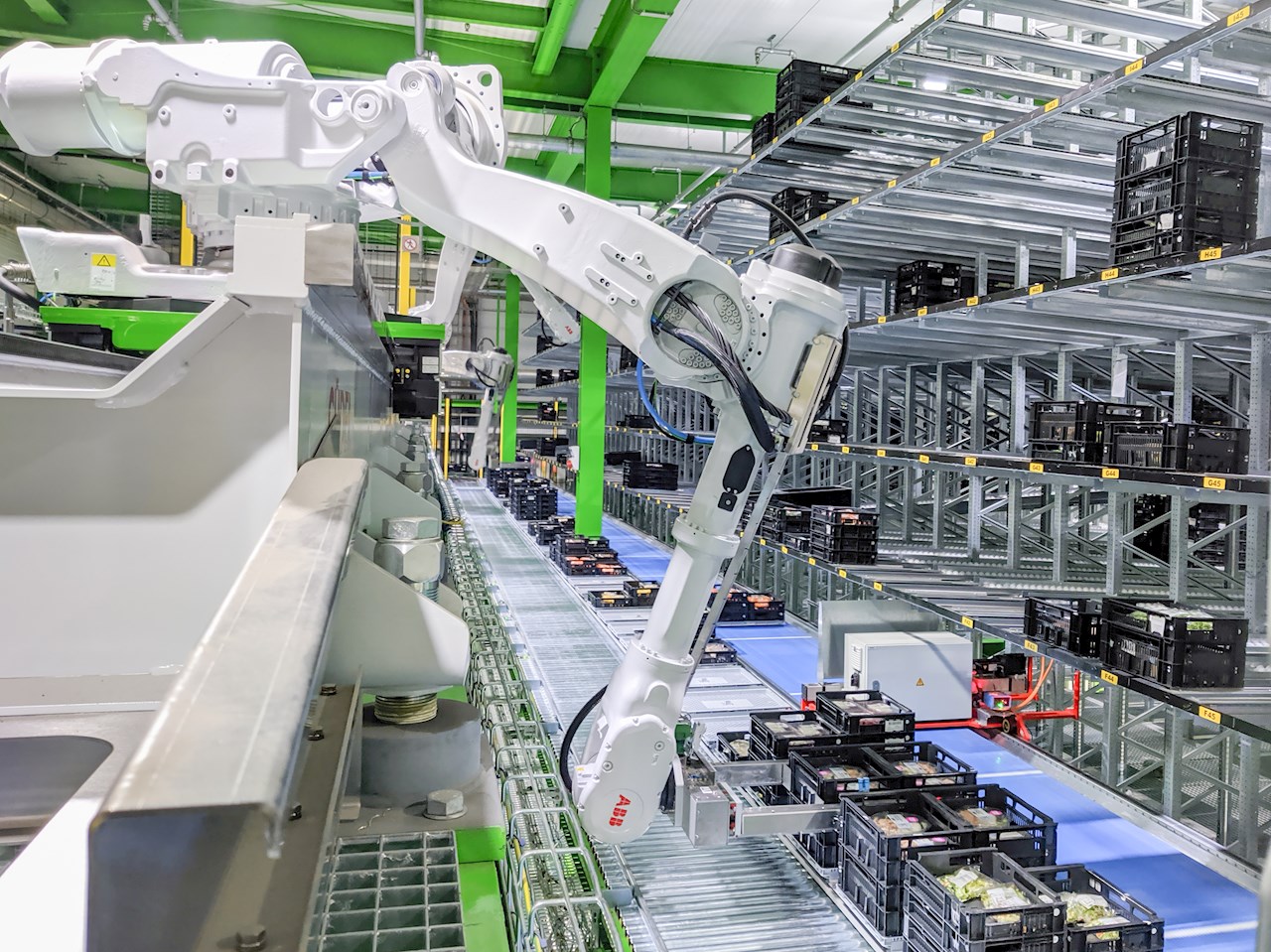
Creating a sustainable food supply chain
While there are many benefits to be gleaned from the ABB robot solution, one of the most important advantages for Heemskerk and its supermarket customers is that the solution reduces the amount of time the fresh produce spends in the supply chain, thereby extending its shelf life, minimizing wastage and creating a more sustainable solution for the fresh food industry. About one-third, or 1.3 billion tons, of all the food produced and packaged for human consumption is wasted every year, according to the United Nations’ Food and Agriculture Organization, and industry players are increasingly ramping up their efforts to reduce the scale of wastage.
The automated order picking capability of the ABB robotic solution allows logistics operators to cross dock products directly to supermarkets. The ability for retailers to receive already order picked quantities for each store increases its shelf life by about one day. On the other hand, in more traditional food logistics processes, the packaged food is first stacked in the supermarket chain’s storage unit where employees pick and stack the food according to orders from each of its stores only after which they are transported the stores. This process typically takes about half a day, lowering the already short shelf life of fresh and natural food.
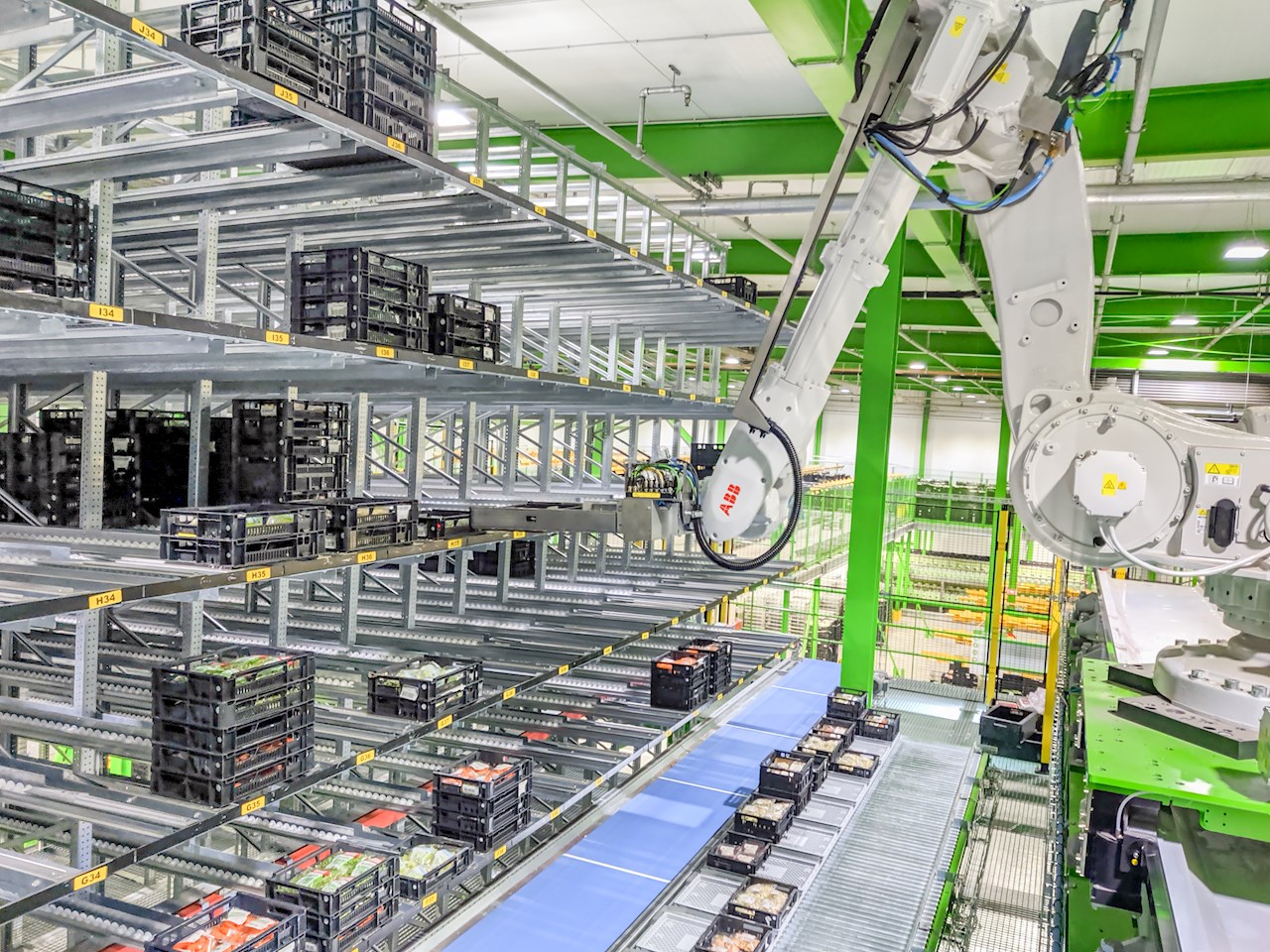
"Over the last ten years, supermarket customers are asking food processors like Heemskerk to deliver their products, already order picked for each store. With the ABB system, Heemskerk is able to smoothly handle the high demanding task of order picking,” said Chris Vleeschouwers, the Sales and Marketing Manager for ABB’s Consumer Segments and Services Robotics. “Today, the ABB robots are able to process 300 to 400 crates per order. Previously, about 30 to 40 people were needed to perform the same task.”
Forging flexibility
Another big advantage for Heemskerk is the flexibility that the ABB system offers. With rapid yet precise movements, the ABB robots are able to quickly adapt to varying demands from supermarket and grocery store customers, whose volume and variety demands change almost every day and according to seasonality.
Unlike traditional logistics automation that typically handle individual units in a time-consuming order picking process, the ABB robotic solution enables Heemskerk to deliver more than 60 large scale order picked deliveries every day. While the system processes over 800,000 crates every week, it can handle double or even triple that volume without needing any changes. On one hand, this flexibility allows Heemskerk to quickly ramp up volume based on demand without added investment and on the other hand the solution eliminates underutilization of the automation system on the rare days when demand is low.
“This robotics system helps us by supporting our very fast manufacturing and order picking process because 75 percent of the products (processed) today are in the retail shops tomorrow,” said Peter van Duijvenbode, the Operational Director of Heemskerk Fresh & Easy.
Insuring the future with scalability
The modular and standardized design of the ABB robot solution makes it very easy to add new robot zones to meet additional capacity. Heemskerk plans to add more robots to its current system to support its future growth.
The entire solution can be installed in relatively low buildings and can even be split up into several modules that need not be necessarily placed next to each other. This makes the automated logistics solution ideal for brownfield applications. Moreover, the system consists of fewer components, meaning reduced maintenance and spare parts costs.
“It is a complex project but the upfront business case is that the system has a Return on Investment (ROI) of three and half years and we are getting close to that number, so for us this is a very successful project,” Peter van Duijvenbode added.
